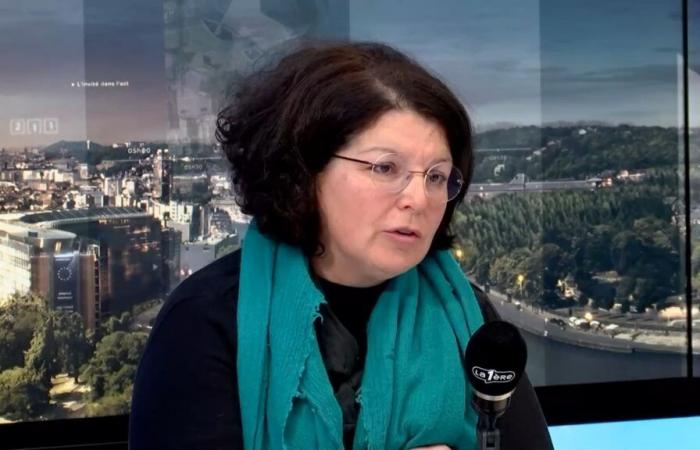The central theme of the mobilization this Monday, January 13, is pensions. The unions called as a united front for the demonstration. At the heart of their concerns: the pension reform projects of the probable future Arizona coalition. These are only projects, there is no agreement yet, recalled Bart De Wever (N-VA) this weekend, but for the unions, explains Marie-Hélène Ska, general secretary of the CSC, it was important to act today: “In the five parties negotiating today, there are minimum savings of 3 billion planned on pensions, and in particular at the level of railway workers and a certain number of social bodies who have the possibility of leaving a little earlier in retirement.“
She recalls that these possibilities have already been eliminated in the private sector.with all the consequences that we see in long-term patients“These preferential regimes concern railway workers, the military or the police, for example. Military personnel can retire at 56, railway workers at 55.”It’s a possibility, insists the general secretary of the CSCthis is not a rule for all staff. It is a possibility to leave at 55, IF you have worked continuously, for 30 years, weekends, evenings, mornings, public holidays, etc.. “
Difficulty
This issue was already on the table under the Michel government. Isn’t this reform essential with regard to public finances, have we not postponed it too much? Marie-Hélène Ska recalls that in 2017-2018, there was an agreement among trade union organizations on taking into account arduousness in the public service. “Cet agreement was never honored by the government. The agreement was on the table and it provided for improvements for the lowest pensions in the public service and also readjustments between professions. […] And so, we are at point zero regarding the consideration of arduousness today.”
The trade unionist recalls that taking into account arduousness has been a constant request from trade union organizations for years. “Or, today, all end-of-career systems have either been made impossible or unpayable. Therefore, it is no longer possible to leave early, except in very rare cases..”
The argument according to which the system must be reformed because it is no longer financeable is not admissible for Marie-Héléne Ska: “We often forget to say that under the government of Charles Michel, employer contributions were reduced from 33 to 25%. These contributions were used in particular to finance social security. So, we cannot be surprised that today it costs to finance the system, since we have been defunding it for a very, very long time now..”
Imposture
Another major point of the Arizona project is the promise of a differential of 500 euros between the income of those who work and those who do not work. On the one hand by reducing taxes on pay slips, and on the other hand by capping or even reducing social benefits and unemployment benefits, through non-indexation for example. “There is a double imposture in these 500 euros, reacts Marie-Hélène Ska. On the one hand, the cost of living is the same for unemployed people as for working people. So indexation must apply to everyone.”
Second element of imposture: “If you are a ‘good worker’, you will not have 500 euros more in your pocket. This promise will not be kept. Simply, the difference between what you earn and what people who no longer work earn may be a little greater than today..”
If you are a ‘good worker’, you will not have 500 euros more in your pocket.
Are other adaptations necessary in the labor market? Competitiveness question, “we have been working on competitiveness since the dawn of time“, question of flexibility”the possibilities for flexibility in Belgium are already enormous“. “What no longer exists, and what workers are asking for, is an ability to build a career with some form of stability, progression, and predictability. It’s not the moon.”
A real change of direction?
Arizona’s reform projects are supposed to be supported by union organizations, at least that’s how they are presented. This involvement will be difficult, believes the trade unionist, who gives an example. There is talk of reforming thematic leave (parental leave, time credit, etc.). “In the note that circulated, it was said ‘you will be able to negotiate with employers provided that the budgetary envelope remains closed. But this is exactly the basic demand of employers. It’s impossible to discuss under these conditions.“
What should serve as a basis for discussions, according to Marie-Hélène Ska, are the real living and working conditions of the population, “to be able to build a social contract with all stakeholders“This is what, for her, would constitute real radicalism, a real change of direction.






